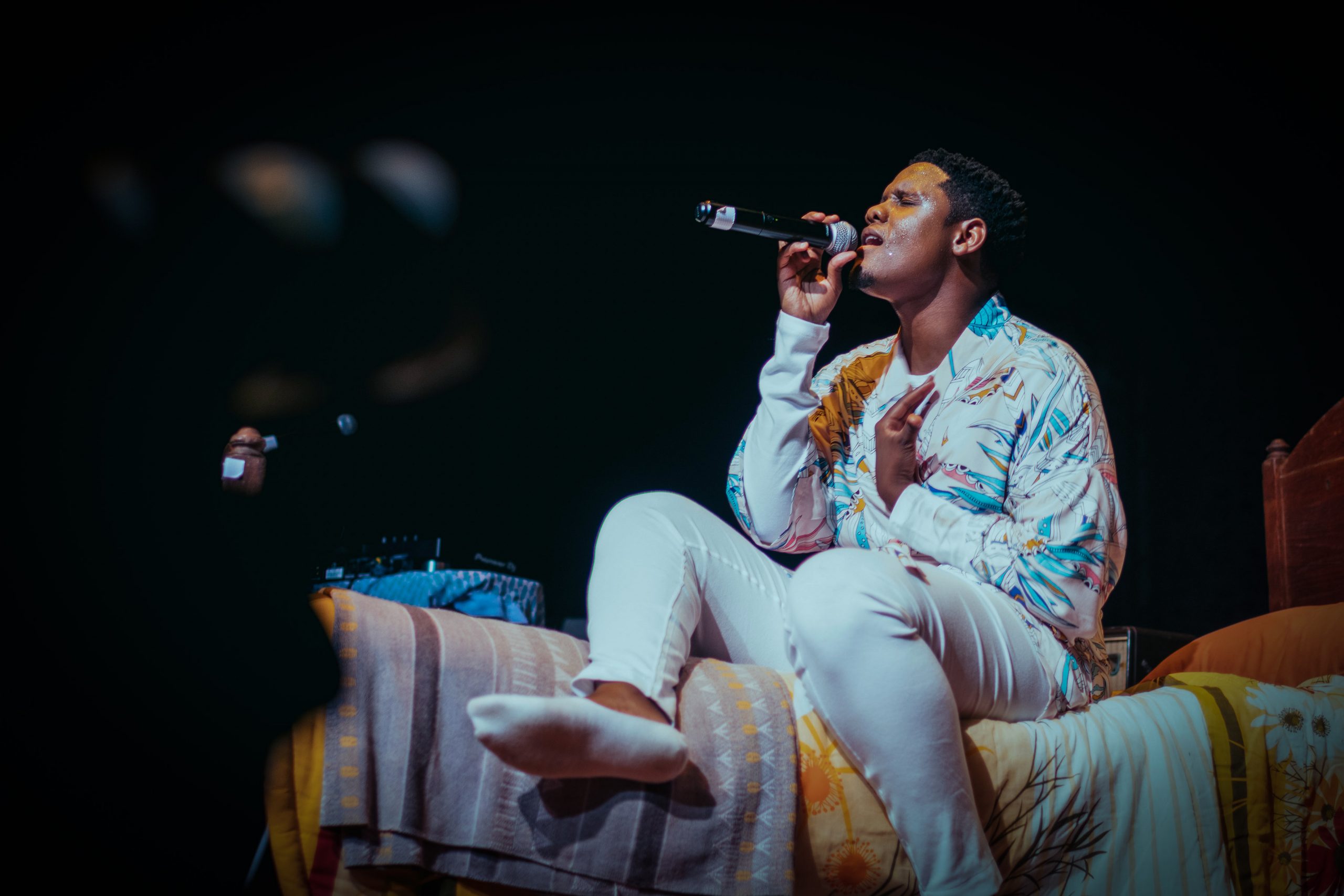Samthing supreme
Musician Samthing Soweto has burst on to the scene with a chart-topping album and seems destined to keep us singing along for years to come.
Author:
15 October 2019

The second song on singer-songwriter Samthing Soweto’s album Isphithiphithi samples audio from a Miriam Makeba interview during her 1969 visit to Finland. uMama begins her answer to a question about life in Jozi by stating that there are two types of people, the haves and the have nots. “I will speak for my community,” she says, though this part is omitted from the song.
But Makeba’s estate refused to clear the sample, which meant the audio was left out of the version of the album released to record-breaking acclaim. Isphithiphithi is the first South African album to have all of its 13 songs charting on iTunes. Samthing Soweto is also the first artist to chart at number one on the Apple Music singles and album charts. Of course, charts are fickle barometers of success, but Samthing Soweto is exceptional. He is a special, rare talent.
The path to solo success
Born Samkelo Lelethu Mdolomba and raised in Soweto, he symbolises hope for a generation of hopefuls. He was nearly famous a decade ago, but dropped out of the popular a capella group The Soil shortly after they signed a recording contract. He was in a band called The Fridge, comprising Bongeziwe Mabandla’s former rhythm section, with Mothusi Thusi on guitars and Ade Omotade on drums. On his journey as a solo artist, the past two years have seen his star rise prodigiously.
In the wake of group projects, Samthing Soweto spent many years trying everything he could to establish himself as a solo artist. He has two critically acclaimed solo releases: This n That Without Tempo (2010) and Eb’suku (2014).
Of This n That Without Tempo, Samthing Soweto says: “Those were songs that I worked on by myself, originally meant for The Soil. The reason they existed is because I was working on [recording for The Soil]. I guess I kinda did it to the point where I had 10 songs just sitting there. When I left, I was like, ‘Ah, I’ll just drop these songs. It’s fine.’ After The Fridge, there was very little direction for me. Most people didn’t know it was my voice on The Soil album, the first album and the deluxe version. I was on that album but never really credited accordingly, or spoken about in interviews.”
Retreat and return
Samthing Soweto was effectively relegated to a bystander position, outside the spotlight that shined on other artists. So he dropped out of view and would only emerge to check out the odd live show and connect with people.
During this strange period, Samthing Soweto connected with the poet Makhafula Vilakazi, who invited him to perform at the sold-out show at Joburg Theatre’s Space.com venue. Vilakazi appears on Omama Bomthandazo, one of Isphithiphithi’s singles.
A call from a woman named Princess, who used to run The Platform venue in Newtown, marked a slow return to form for Samthing Soweto. The deal was for the show to happen mid-December, just when people start leaving the city on holiday.
“We played to an audience of 80 people. It was a great show. It was awesome,” he recalls heartily. “I hadn’t sung live in forever. It was really dope. That’s how I got back.”
Related article:
That show resulted in a call from Nomsa Mazwai offering him and the band a February date at the Soweto Theatre. The main theatre seats 400 people, and all he needed to do was fill it up.
“I played [a sold out show at the] Soweto Theatre for the first time. Sanele [Sithole] was also attending,” he says.
Sithole is a popular DJ, producer and artist called Sun El-Musician, who blazed onto the South African scene. The two musicians collaborated on a killer track.
“Sanele dropped a song [Akanamali in April 2017] for free on the internet that we’d worked on … The song picked up slowly. It went crazy, built naturally. By November, it was the biggest song in the country.” The closest contender to Akanamali that year was Distruction Boyz’s smash hit Omunye. Samthing Soweto was back to gigging regularly – and hasn’t left the spotlight since.
Requests for collaboration came flooding in. DJ Maphorisa was one of them. They tried working on something, but it didn’t work. Around December last year, Maphorisa got in touch to try collaborating again.
“At the same time, he was linking up with Kabza da Small, who really played a major role on my album. He’s probably touched all the songs there. [The Maphorisa and Kabza] combination is very deadly,” he says.
A masterful album
Isphithiphithi is a masterful pop album. It’s the filter through which his previous incarnations arrive fully realised. The album centres on love, which Samthing Soweto has always written about – romantic love, love for family and love for black people. His passion for partying is an added extra, mainly because of the amapiano element in his music. He credits his ability to navigate DJ Maphorisa and Kabza da Small’s amapiano sounds to the kwaito music he heard growing up. “I can walk longer than most people [because] I know my history. If I wasn’t into kwaito at some point, I’d never make the [amapiano] songs I’m making,” he asserts.
The amapiano songs towards the end of the album – Lotto, AmaDM and Akulaleki – can be jarring for a listener looking for an uninterrupted, free-flowing listen. But this glitch in sequencing, which could have been solved by adding an interlude, doesn’t take away from the album.
Related article:
Stand-out songs include Azishe; the album opener Sebenzela Nina, which he says describes “why people do what they do when they work for their families and why I do what I do when I work for my audience”; and, Nodoli, written for his daughter.
Samthing Soweto used Miriam Makeba’s music to find bits of himself and to communicate the precarity of his people to a broader audience, much like she did when addressing the UN General Assembly in 1963. When Makeba’s estate refused to clear the sample, they were inadvertently partaking in a tradition that ensures the routine erasure of the greatest among us. In nodding to her extraordinary archive and activism, Samthing Soweto joins artists such as Msaki, Somi and Neo Muyanga in reclaiming her legacy.
Isphithiphithi is a reminder to see ourselves in conversation with history and feels destined for major success. For now, we’re gearing up to celebrate Samthing Soweto. He’s sure to nab the sought-after Song and Album of the Year nods at the South African Music Awards next year.


